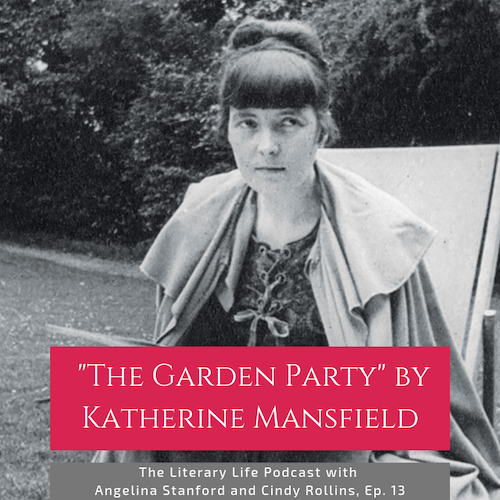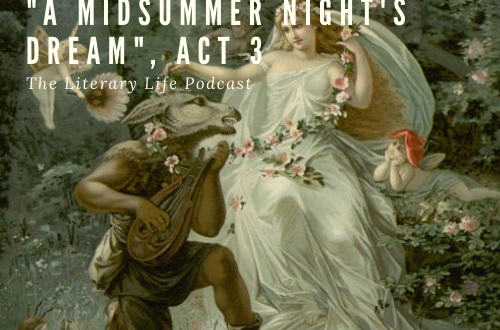
Episode 13: “The Garden Party” by Katherine Mansfield
This week on The Literary Life, Cindy and Angelina discuss Katherine Mansfield’s short story “The Garden Party.” Before starting today’s episode, we want to encourage you to register for the Back to School online conference coming up on August 26-29, 2019!
After a great chat over their commonplace quotes, Angelina and Cindy dig into this week’s short story, “The Garden Party.” They start with how Cindy found this story and the connections she was making to Little Women. Angelina gives a brief biographical sketch of Katherine Mansfield and highlights how Mansfield’s own illness and death give us insight into how she deals with death in this story. Angelina walks us through how she looks at the use of figurative language and images, such as the Garden of Eden. They also touch on “The Garden Party” having the same structure of moving toward a moment of epiphany that we saw in “Araby.”
Cindy brings up the disconnect between the world of the women at home and the working people outside the home, as well as between the classes in this story. They talk about the importance of Laura’s new hat as a symbol of one type of person she can become. Another image that Angelina and Cindy take a look at is the descent from the garden into darkness. They discuss the parallels from the beginning of the story and the end of the story, as well as Laura’s movement from innocence to experience, from blindness to sight.
Listen to The Literary Life:
Summer of the Short Story:
Ep 14: “Adventures of a Shilling” by Joseph Addison
Ep 15: “The Necklace” by Guy de Maupassant
Ep 16: “Why I Write” by George Orwell
Ep 17: “The Celestial Omnibus” by E. M. Forster
Ep 18: “Vulture on War” by Samuel Johnson
The Truly Great
by Stephen Spender
I think continually of those who were truly great.
Who, from the womb, remembered the soul’s history
Through corridors of light, where the hours are suns,
Endless and singing. Whose lovely ambition
Was that their lips, still touched with fire,
Should tell of the Spirit, clothed from head to foot in song.
And who hoarded from the Spring branches
The desires falling across their bodies like blossoms.
What is precious, is never to forget
The essential delight of the blood drawn from ageless springs
Breaking through rocks in worlds before our earth.
Never to deny its pleasure in the morning simple light
Nor its grave evening demand for love.
Never to allow gradually the traffic to smother
With noise and fog, the flowering of the spirit.
Near the snow, near the sun, in the highest fields,
See how these names are fêted by the waving grass
And by the streamers of white cloud
And whispers of wind in the listening sky.
The names of those who in their lives fought for life,
Who wore at their hearts the fire’s centre.
Born of the sun, they travelled a short while toward the sun
And left the vivid air signed with their honour.
Copyright © 1955 by Stephen Spender. Source: Collected Poems 1928-1953
Book List:
Imitation of Christ by Thomas à Kempis
The Voyage of the Dawn Treader by C. S. Lewis
The Weight of Glory by C. S. Lewis
How to Read Literature Like a Professor by Thomas C. Foster
Support The Literary Life:
Become a patron of The Literary Life podcast as part of the “Friends and Fellows Community” on Patreon, and get some amazing bonus content! Thanks for your support!
Connect with Us:
Find Angelina at https://angelinastanford.com and on Facebook at https://www.facebook.com/ANGStanford/
Find Cindy at https://cindyrollins.net and on Facebook at https://www.facebook.com/cindyrollins.net/
Jump into our private Facebook group, The Literary Life Discussion Group, and let’s get the book talk going! http://bit.ly/literarylifeFB
Subscribe to The Lit Life:









One Comment
Cory
Interesting. Thanks for sharing.